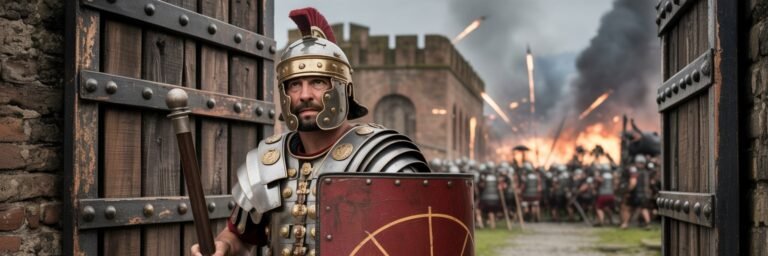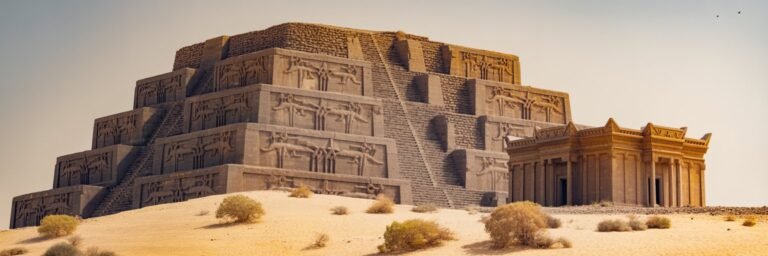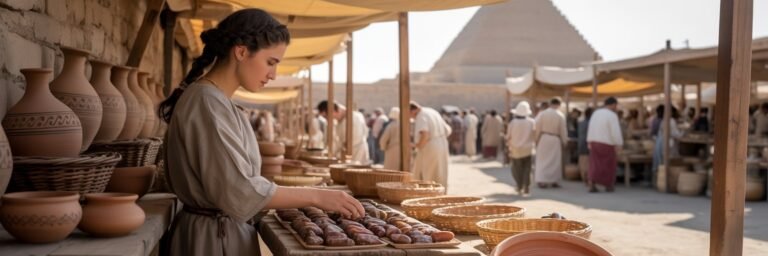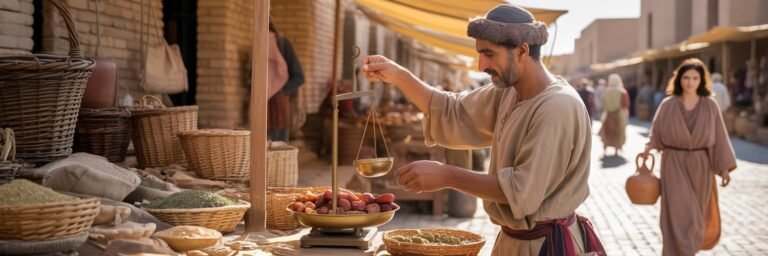INTRODUCTION
In every era of human history, conflict has been an influential force, shaping societal structures, toppling empires, and fueling innovation. The battlefield has been the meeting point of ideologies, the determinant of power, and the canvas for enduring historical narratives. As we journey into antiquity, we uncover tales of epic clashes waged between emergent civilizations. These decisive engagements etched permanently onto the annals of history provide us valuable insights into the geopolitics, society, and cultural landscapes of the bygone times. From the individual heroics on the Mesopotamian plains to the ingenious tactical maneuvers on Greek hills, these key battles have informed the trajectory of ancient civilizations, and by extension, our modern world.
HISTORICAL BACKGROUND
As we delve into the Bronze Age, our journey begins with the first recorded battle in human history: the Battle of Megiddo in 1457 BC. The Egyptian Pharaoh Thutmose III, known as the ‘Napoleon of Egypt’ led a daring campaign against the allied forces of Kadesh, a city in the ancient region of Canaan. This battle holds historical prominence not only for being the earliest recorded military conflict but also for the tactical genius displayed by Thutmose III. Breaking from convention, he led his troops along a dangerous, narrow path, surprising the enemy forces and securing a resounding victory.
Forwarding the historical clock to the 5th century BC, we land on the soil of ancient Greece, ripe with political tumult. The Battle of Marathon in 490 BC lands a significant spot in the chronicles of warfare. It saw the citizen-soldiers of Athens, the Hoplites, despite being heavily outnumbered, vanquish the invading Persian force. This victory had a profound impact on Athenian self-confidence, strengthening the concept of democracy and paving the way for what historians term as the ‘Golden Age of Athens’.
THEORIES AND INTERPRETATIONS
How these ancient civilizations gained victories against often overwhelming odds has fueled myriad interpretations by historians. Thutmose’s unconventional tactics in the Battle of Megiddo provided a template for later military strategists; his notion of the element of surprise is echoed in Sun Tzu’s “Art of War”. Some argue that the foundation of warfare strategy was laid here, on the dusty plains of Canaan.
Theories surrounding the Battle of Marathon abound. The stylized accounts by Herodotus talk about the Athenians suddenly charging at the Persians, catching them off guard. However, modern historians dispute this, suggesting instead the possibility of a protracted stalemate followed by a tactical Athenian withdrawal that enticed the Persian cavalry onto their ships, weakening the Persian infantry, and enabling the epic Greek win.
MYSTERIES AND CONTROVERSIES
Alongside the historical interpretation of these battles, there exist controversies spurring animated debates among historians. Regarding the Battle of Megiddo, debate unfolds on just how much creative control Thutmose III had over his celebrated account inscribed on the walls of the Temple of Karnak.
When it comes to Marathon, the legend of the Greek soldier Pheidippides, running from Marathon to Athens to announce victory before dying, is hotly contested. The account from Herodotus, the so-called ‘Father of History,’ contradicts the popular narrative and instead cites that Pheidippides was sent to Sparta for reinforcement before the battle, not after. The mystery sandwiches the factual accuracy of these narratives in an ambiguous continuum.
SYMBOLISM AND CULTURAL SIGNIFICANCE
Beyond their military significance, these battles have come to symbolize defining moments in their respective civilizations. The Battle of Megiddo exemplified the Egyptian might under Thutmose III, solidified his status, and validated his divine kingship, boosting the imperial ego of Egypt. It was a cultural statement declaring the prowess of Egypt.
The Battle of Marathon rapidly grew from a military victory to a national legend, coming to represent the defense of the ‘free world’. It evoked democratic values and heroism. Today, the ‘Marathon’ run is celebrated worldwide, stemming from the legendary run of Pheidippides, making this ancient battle a living symbol in our modern world.
MODERN INVESTIGATIONS
Modern research and archeology have continually enriched our understanding of these battles. For instance, through reconstructive archeology, historians have recreated the chariots used during the Battle of Megiddo, affording us insights into ancient warfare tactics.
Recent analysis of environmental and climatic conditions of that period provided a new clue about the Battle of Marathon. It suggested the possibility of a torrential downpour that possibly hampered the Persian horses and gave the Athenians an unforeseen edge.
LEGACY AND CONCLUSION
The legacy of these ancient battles continues to shape our modern world. Thutmose’s military strategies continue to inspire modern warfare. From a cultural perspective, his reign marked the zenith of art and architecture in Egypt.
On the other hand, the Battle of Marathon has become a universal symbol of underdog victory. It laid the foundations of the concept of citizenship and, arguably, the conception of the west. In conclusion, the key battles of antiquity are not merely historical events; they are cultural wellsprings, reverberating through the ages, their echoes reaching into the psyche and socio-political fabric of our present world.






